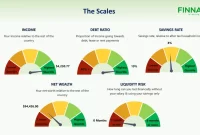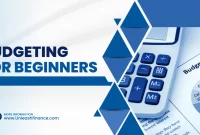Managing Debt Wisely: Techniques for a Debt-Free Life
Understanding Different Types of Debt
In order to manage debt wisely and strive for a debt-free life, it is crucial to have a clear understanding of the various types of debt that exist. By recognizing and distinguishing between these different types of debt, individuals can make informed decisions when it comes to borrowing and repaying money.
1. Consumer Debt
Consumer debt refers to the money owed by individuals for personal expenses, such as credit card debt, medical bills, or car loans. This type of debt is typically unsecured and carries higher interest rates compared to other forms of debt.
2. Student Loans
Student loans are specifically obtained to fund education and academic expenses. These loans can be provided by the government or private lenders, and they often come with varying interest rates and repayment terms.
3. Mortgage Debt
Mortgage debt is the money borrowed to finance the purchase of a home. This debt is secured by the property itself and is typically repaid over a long period of time, such as 15 or 30 years. Mortgage debt usually comes with lower interest rates compared to consumer debt.
4. Business Debt
Business debt refers to the money borrowed to finance a business or investment venture. It can include loans, lines of credit, or other forms of financing that help businesses grow and prosper.
5. Emergency Debt
Emergency debt is unexpected debt incurred due to unforeseen circumstances, such as medical emergencies or car repairs. This type of debt can be quickly accumulated and may require immediate attention to avoid further financial strain.
Understanding the various types of debt can help individuals make better decisions regarding their financial health. By managing debt wisely, individuals can work towards a debt-free life and achieve greater financial stability.
Creating a Debt Repayment Strategy
A key aspect of managing debt wisely is to develop a solid plan for repayment. Without a strategy in place, it can be difficult to make progress towards a debt-free life. Here are some techniques to help you create an effective debt repayment strategy:
-
Evaluate Your Debts:
Start by assessing the types and amounts of debts you have. Make a list of all your outstanding balances, interest rates, and minimum monthly payments.
-
Prioritize High-Interest Debts:
Focus on paying off debts with high interest rates first. This will save you money in the long run and expedite your journey towards becoming debt-free.
-
Create a Budget:
Develop a realistic budget that allows you to allocate a portion of your income towards debt repayment. Cut out unnecessary expenses and redirect those funds towards paying off your debts.
-
Consider Debt Consolidation:
If you have multiple debts with varying interest rates, consolidating them into one loan with a lower interest rate can simplify your repayment process and potentially save you money.
-
Explore Debt Negotiation:
Contact your creditors to negotiate lower interest rates, reduced fees, or extended repayment terms. This can make your debts more manageable and give you some relief.
-
Stay Committed:
Stick to your debt repayment strategy and avoid accumulating additional debts. Remember, consistency and perseverance are essential to achieving a debt-free life.
By following these techniques and creating a personalized debt repayment strategy, you can take control of your financial situation and pave the way towards a debt-free future.
Debt Consolidation and Refinancing Options
In the quest for a debt-free life, managing your debts wisely becomes crucial. If you find yourself overwhelmed with multiple debts, debt consolidation and refinancing options can provide relief and help you regain control of your finances.
Debt Consolidation:
Debt consolidation involves merging multiple debts into a single one. This approach simplifies your payment process by combining various debts, such as credit card bills, personal loans, and medical bills, into a single monthly payment. By doing so, you can streamline your repayments and potentially secure a lower interest rate.
Benefits of Debt Consolidation:
- Simplified repayment process
- Lower monthly payments
- Potential reduction in interest rates
- Improved credit score
Refinancing:
If you have high-interest debts, refinancing can be a viable option. By refinancing your debts, you can replace existing high-interest loans with a new loan that offers better terms and lower interest rates. This can lead to reduced monthly payments and potential long-term savings.
Benefits of Refinancing:
- Lower interest rates
- Potential savings in the long run
- Consolidation of high-interest debts
- Opportunity to improve credit score
It is important to carefully consider both the advantages and potential drawbacks of debt consolidation and refinancing options. Depending on your financial situation and goals, one option may be more suitable than the other. Consulting with a financial advisor can provide further guidance tailored to your specific circumstances.
Developing Healthy Financial Habits
Managing debt wisely is essential for achieving a debt-free life. By developing healthy financial habits, you can regain control of your finances and improve your overall financial well-being. Here are some techniques to help you on your journey towards debt-free living:
Create a Budget
Start by creating a monthly budget that outlines your income and expenses. This will give you a clear picture of where your money is going and help you identify areas where you can cut back on spending.
Track Your Expenses
Keep track of every expense, no matter how small. By monitoring your spending habits, you can identify unnecessary expenditures and make adjustments accordingly.
Pay Your Bills on Time
Make it a priority to pay your bills on time to avoid late fees and penalties. Set up automatic payments or reminders to ensure you never miss a payment.
Eliminate High-Interest Debt First
If you have multiple debts, focus on paying off the ones with the highest interest rates first. This will save you money in the long run and accelerate your journey towards debt freedom.
Avoid Impulsive Purchases
Before making a purchase, take some time to consider whether it is a necessity or a want. Avoid impulsive buying and prioritize saving and reducing debt.
Build an Emergency Fund
Having an emergency fund can protect you from unexpected expenses and prevent you from relying on credit cards or loans in times of financial hardship. Aim to save at least three to six months’ worth of living expenses.
Seek Professional Help if Needed
If you find yourself overwhelmed with debt, don’t hesitate to seek help from a financial advisor, credit counselor, or debt consolidation service. They can provide guidance and help you develop a personalized plan to manage and reduce your debt effectively.
By implementing these techniques and adopting healthy financial habits, you can take control of your debt and pave the way for a debt-free life. Remember, it requires discipline, consistency, and perseverance, but the rewards are well worth it.
Conclusion
In conclusion, managing debt wisely is crucial for living a debt-free life. By implementing techniques such as creating a budget, reducing spending, increasing income, and prioritizing debt repayment, individuals can take control of their financial situation. It is important to remember that managing debt requires discipline, patience, and a long-term commitment. With the right strategies in place, anyone can achieve a debt-free life and build a strong financial foundation.




